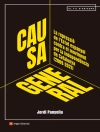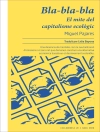With growing evidence of unsustainable use of the world’s resources, such as hydrocarbon reserves, and related environmental pollution, as in alarming climate change predictions, sustainable development is arguably the prominent issue of the 21st century. This volume gives a wide ranging introduction focusing on the arid Gulf region, where the challenges of sustainable development are starkly evident. The Gulf relies on non-renewable oil and gas exports to supply the world’s insatiable CO2 emitting energy demands, and has built unsustainable conurbations with water supplies dependent on energy hungry desalination plants and deep aquifers pumped beyond natural replenishment rates. Sustainable Development has an interdisciplinary focus, bringing together university faculty and government personnel from the Gulf, Europe, and North America — including social and natural scientists, environmentalists and economists, architects and planners — to discuss topics such as sustainable natural resource use and urbanization, industrial and technological development, economy and politics, history and geography.
Jadual kandungan
List of Figures
List of Tables
Forward
Shaikha Al-Misnad
Introduction: Sustainable Development in the Gulf: Some Introductory Remarks
Paul Sillitoe
Chapter 1. Societal Change and Sustainability within the Central Plateau of Iran: An Archaeological Viewpoint
Mark Manuel, Robin Coningham, Gavin Gillmore and Hassan Fazeli
PART I: PLANNING SUSTAINABLE DEVELOPMENT
Chapter 2. Qatar National Vision 2030: Advancing Sustainable Development
Trudy Tan, Aziza Al-Khalaqi and Najla Al-Khulaifi
Chapter 3. The Qatar National Master Plan
Khondker Rahman
Chapter 4. The State of Qatar: Along the Way to Sustainable Development
Bahaa Darwish
Chapter 5. Charting the Emergence of Environmental Legislation in Qatar: A Step in the Right Direction or Too Little Too Late?
Wesam Al Othman and Sarah F. Clarke
PART II: ENERGY AND ECONOMIC ISSUES
Chapter 6. Sustainable Energy: What Futures for Qatar?
Thomas Henfrey
Chapter 7. Money Rain: The Resource Curse in Two Oil and Gas Economies
Emma Gilberthorpe, Sarah F. Clarke and Paul Sillitoe
Chapter 8. Islam and Sustainable Economic Development
Rodney Wilson
PART III: ENVIRONMENTAL ISSUES
Chapter 9. Linking Local and Global in the Sustainable Development of Biodiversity Conservation
Ben Campbell
Chapter 10. Conservation and Sustainable Development: the Qatari and Gulf Region Experience
Paul Sillitoe with Ali Alshawi
Chapter 11. Promoting Sustainable Development in Marine Regions
James Howard
Chapter 12. Biodiversity Conservation and Sustainability: Friends or Enemies?
Nobuyuki Yamaguchi
PART IV: URBAN AND HEALTH ISSUES
Chapter 13. From Pearling to Skyscrapers: The Predicament of Sustainable Architecture and Urbanism in Contemporary Gulf Cities.
Ali A. Alraouf and Sarah F. Clarke
Chapter 14. How the City Grows: Urban Growth and Challenges to Sustainable Development in Doha, Qatar
Andrew M. Gardner
Chapter 15. Sustainable Waste Management in Qatar: Charting the Emergence of an Integrated Approach to Solid Waste Management
Sarah Clarke with Salah Almannai
Chapter 16. Sustainable Development and Health: From Global to Local Agenda
Mylène Riva, Catherine Panter-Brick and Mark Eggerman
PART V: CULTURAL AND SOCIAL ISSUES
Chapter 17. Exploring Collaborative Research Methodologies in the Pursuit of Sustainable Futures
Gina Porter
Chapter 18. On the Importance of Culture in Sustainable Development
Serena Heckler
Chapter 19. People, Social Groups, Cultural Practices: From Venn Diagrams to Alternative Paradigms for Sustainable Development
Fadwa El Guindi
Chapter 20. Indigenous Knowledge and Cultural Values: Environmental Contradictions in Qatari Society
Kaltham Al-Ghanim
Conclusion: A Doha Undeclaration, Puzzling over Sustainable Development with Indigenous Knowledge
Paul Sillitoe
List of Contributors
Index
Mengenai Pengarang
Paul Sillitoe FBA is Professor of Anthropology at Durham University and former Shell Chair in Sustainable Development at Qatar University. His research interests focus on natural resources management, appropriate technology, and sustainable development, and he seeks to further the incorporation of local knowledge in development, having experience with several international development agencies. His recent books include ‘Grass-Clearing Man’: A Factional Ethnography of Life in the New Guinea Highlands(2009 with J. Sillitoe, Waveland Press) and From land to mouth: the agricultural ‘economy’ of the Wola of the New Guinea Highlands (2010 , Yale University Press).












